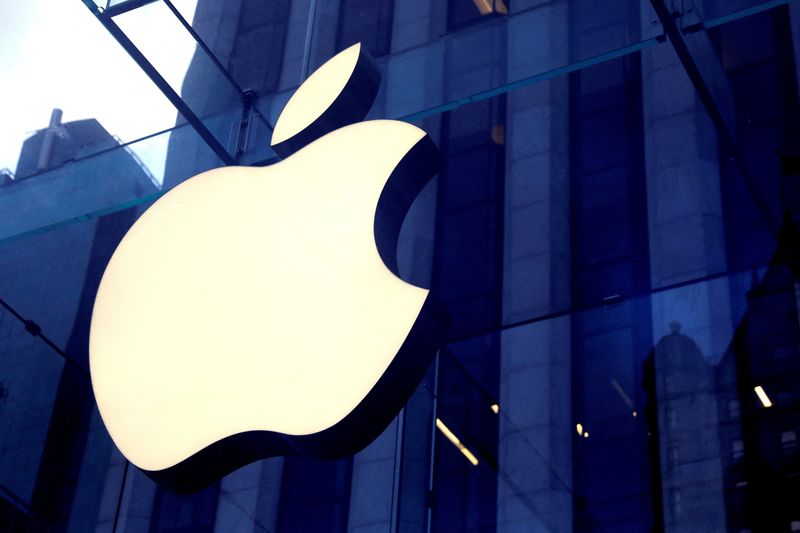By Padraic Halpin and Conor Humphries
DUBLIN (Reuters) -An EU court order that Apple (NASDAQ:AAPL) pay Ireland 13 billion euros ($14.4 billion) in back taxes triggered mixed feelings in Dublin on Tuesday as the government assessed possible reputational damage and rebuffed opposition calls for the cash to be spent quickly.
Ireland had fought the EU back-tax bill alongside Apple since 2016, seeking to defend its position as the location of choice for U.S. multinationals in Europe - and the billions of euros in direct and indirect taxes they bring in each year.
The government played down the finding by the Court of Justice of the European Union that it granted the iPhone maker unlawful aid through its tax treatment as an issue "of historical relevance only" due to changes in tax rules since.
But it reluctantly accepted that it must now take the back taxes held in an escrow fund estimated at 13.8 billion euros.
Finance Minister Jack Chambers said ministers would "carefully consider" in the coming weeks how best to use the money but that it would not be added to next month's budget pot.
Opposition parties, who have criticised the government's decision in 2016 to join Apple in appealing the ruling, repeated calls for the windfall to be used quickly to fix a housing crisis and help fund stretched services like healthcare.
"If they (the government) had their way, the taxpayer would be down more than 13 billion euros... The mind boggles," Mary Lou McDonald, leader of the main opposition Sinn Fein party, told reporters.
The government has already set out plans to cut taxes and hike spending in an 8.3 billion euro pre-election Oct. 1 budget, to the extent that it will break its own fiscal rule, meant to cap spending growth at 5%.
Ireland is already taking in more tax than it can spend - primarily due to surging corporate tax receipts paid by foreign companies like Apple - and has set up a new sovereign wealth fund it hopes to grow to 100 billion euros by 2035.
It expects to take in 24.5 billion euros in corporate tax this year, mainly from big foreign multinationals, and had collected significantly more than expected by the end of August.
Spending Minister Paschal Donohoe said increasing spending any further now risked stoking inflation again just as it has stabilised at around 1%.
Other EU countries might also lay claim to part of the funds following Tuesday's final ruling in the antitrust case, although Chambers said it was not yet possible to comment on whether they would do so.
REPUTATIONAL DAMAGE
Foreign multinationals, attracted in large part due to low tax rates, make up around 11% of the entire labour market in Ireland - twice the workforce they had when the Apple controversy broke in 2013.
Peter Vale, tax partner at Grant Thornton, said Tuesday's ruling might do temporary damage to Ireland's reputation but was unlikely to impact foreign direct investment.
"While it does relate to a bygone era, even last week, (ex-U.S. President Donald) Trump accused Ireland of being a tax haven," Vale said. "We'll vigorously defend that, but it only adds further fuel to the fire to those sort of assertions."

Since the EU order in 2016, Ireland has made a number of changes to its corporate tax code and did the once unthinkable by dropping opposition to giving up its prized 12.5% corporate tax rate as part of an overhaul of global tax rules.
($1 = 0.9057 euros)